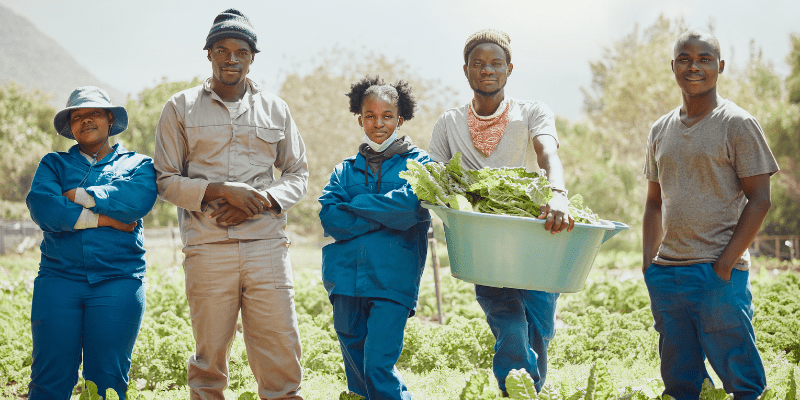How are you supporting the mental health of international agriculture workers?

International seasonal agriculture workers have been coming to Ontario to work on farms and in greenhouses for many years. Farmers have been finding it challenging to hire and retain qualified local workers, so international workers have been filling that gap. For the workers, coming to work at an Ontario farm for eight months is a better economic opportunity than they find in their home country.
“It’s really a win-win situation in many ways,” says Veronique Bisaillon, Health and Safety Consultant with WSPS, “However, for these international agriculture workers to thrive, employers need to understand the challenges they face when coming to a new country and they need to have a plan to support them,” she adds.
Common challenges
“Most of these workers do not speak English, so that alone is a significant barrier for them to overcome,” says Veronique. In addition to the language barrier, international agriculture workers usually find themselves in rural areas, which can be isolating. “From a cultural perspective, many workers are coming from places where they have strong community ties and where they are used to frequent social interaction,” explains Veronique
Adapting to a new culture can be difficult. Being far from family and friends may cause feelings of loneliness. Everyday things, like familiar foods from home, may be difficult to find in a new country. “Even getting used to a different climate can be challenging,” says Veronique. “And this is all in addition to learning a new job. It can be a very stressful time,” she says. If not addressed, these factors could create a negative work experience and lead to poor mental health.
5 tips to help international workers thrive
“One of the most important things you can do to support positive mental health is treat international workers fairly,” says Veronique. When you provide training, required personal protective equipment, proper breaks, and reasonable work hours, it shows workers that you value them. Veronique also recommends that employers provide workers with their cell number or add them to a chat app and tell them they are welcome to contact you. Here are a few other things employers can do to help international agriculture workers thrive.
- Have resources in their preferred language. When preparing to welcome international workers, find resources and information in their first language. Having a solid understanding of what the job involves and what the expectations are will help make the transition less stressful for new workers coming onboard. “I’ve worked with some farmers who took the time to learn some basic phrases in the first language of their workers,” says Veronique.
- Make sure reliable internet and mobile services are available. In most cases, phone calls and video chats are the only way international workers can connect with friends and family back home. Ensuring that they have the means to do that will help them maintain positive mental health while they are away from home. “Consider time zones and, if possible, schedule work in a way that allows workers to chat with family at reasonable times,” recommends Veronique.
- Provide comfortable housing. For workers who are in a new country, far from home, having a comfortable place to live is very important. Avoid overcrowding small living spaces. Think about what workers may do outside of their work hours and provide a place that is conducive to resting and recharging. Doing so will lead to energetic, productive workers. As a best practice, house returning workers with new workers so that they can act as mentors.
- Connect with a local cultural group. Before international workers arrive, do some research into local cultural groups. When workers arrive, give them contact information or, better yet, arrange to have someone from the group come to speak to them. Having an outlet to stay connected to their language and culture can be very beneficial.
- Encourage the same group to return. As much as possible, try to have the same group of people return year after year. As international workers become more familiar with the work, the surrounding area, and the people, the transition becomes easier. It gives international workers an opportunity to build relationships, which helps reduce feelings of isolation and loneliness.
How WSPS can help
Consulting
Champion your mental health journey with a dedicated consultant on mental health.
Training
- Psychological Health and Safety Awareness (eCourse, 20 minutes)
- Orientation on Health and Safety for New Agricultural Workers (eCourse, 1.5 hours)
Resources
- Multi-language worker safety resources (poster)
- Agriculture worker safety resources: Available in 4 languages (videos and articles)
- New worker orientation for seasonal agricultural workers
- Farm Safety Roundup Podcast, Ep 4: Protecting Mental Health in Agriculture - Are you ready?
Other resources
- Resources for Employers of International Agricultural Workers (Ontario.ca)
- Mental Health Resources for Farmers (Ontaro.ca)
- Agriculture Wellness Ontario
- The International Agricultural Worker Wellness Program
The information in this article is accurate as of its publication date.




